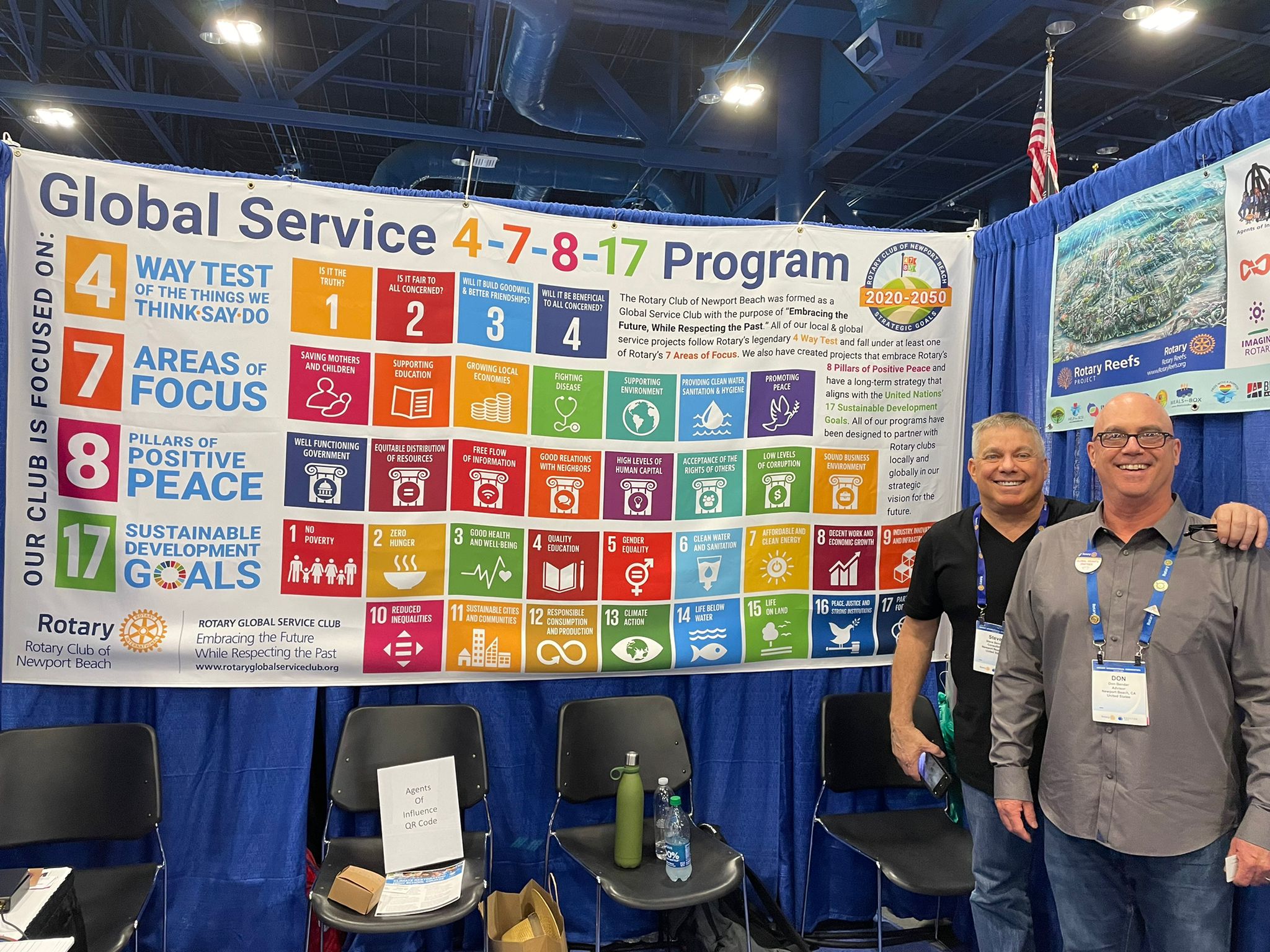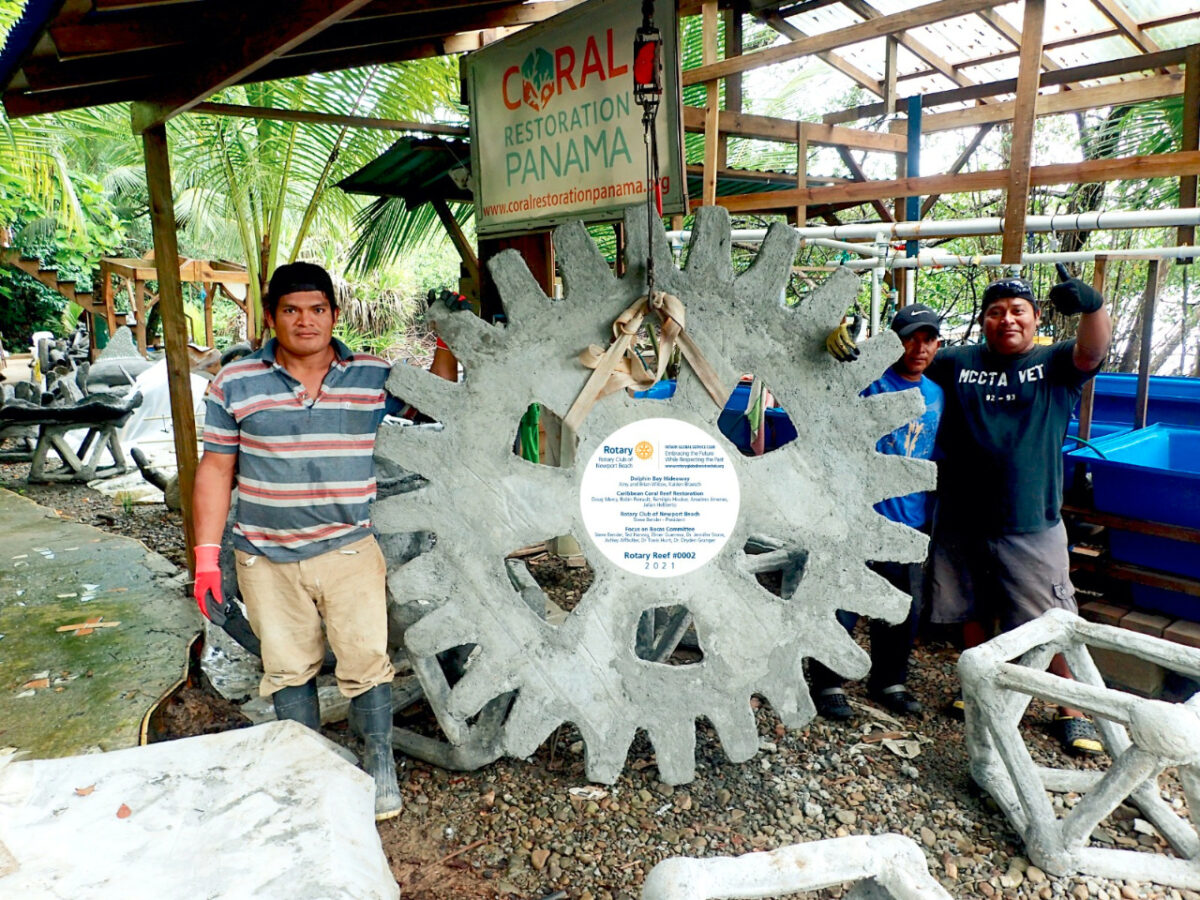Launched in 2017, the Rotary-Institute for Economics & Peace (IEP) Partnership is one of Rotary’s strategic partnerships. Rotary’s key strength is the ability to convene and mobilize locally – Rotary members are experts at this. Thus, Rotary members organizing and working at the community-level make it possible to create environments where lasting peace is possible, and, in turn, bring about more peaceful societies – from the local to the global.
IEP is an international and independent think tank dedicated to shifting the world’s focus to peace as a positive, achievable, and tangible measure of human well-being and progress. The Institute’s key strength is its decade long data driven peace research, which is being used to teach Rotary members to apply new peacebuilding methods to their communities while addressing underlying causes of conflicts.
In addition, the partnership allows for the development of local workshops hosted by Rotary clubs to educate communities about Positive Peace, as well as community-based projects in peace and conflict resolution that are both practical and impactful.
The Rotary-IEP Partnership – through IEP’s Pillars of Positive Peace framework – provides a unique structure to:
The core focus of the Partnership is IEP peace education for Rotary stakeholders, to help them shift attitudes and approaches to peacebuilding and to create meaningful change in their communities by applying the framework of Positive Peace to their interventions.

The Rotary Club of Newport Beach embraced the Positive Peace Framework through their “4-7-8-17 Program”. A combination of Rotary guiding points—the “Four-Way Test” and “7 Areas of Focus”—, the “8 Pillars of Peace”, and the United Nations’ “17 Sustainable Development Goals”, this program ensures their global service projects are relevant to the organizational focus.
Brothers Steve and Don Bender developed this program as they noticed it encompassed all the tools necessary to effectively communicate their goals as a Global Service Club to other Rotary clubs and the general public. In particular, Steve and Don wanted to highlight existing frameworks which they did by looking at Rotary’s connections to IEP and the UN.
Because of Newport Beach’s unique location near the coast, a number of their projects, like “Rotary Reefs” and “Seas & Straws”, are focused on ecological sustainability by ensuring our oceans are kept clean and properly taken care of. However, this is not their only area of focus, as they also develop projects that enhance civic knowledge and engagement, establish global networks, and address climate change. Some examples include “Democracy in a Box”, the “Women Empowerment Project”, and the “RCAT Network”.
When a Rotary member presents a possible project to the club, during the project’s evaluation stage it is a must that the design correlates to the “4-7-8-17 Program”. The requirement is that every project follows the “Four-Way Test”, one of the “7 Areas of Focus”, and one of the UN’s “17 Sustainable Development Goals”. The “8 Pillars of Peace” have been viewed as the magic bullet, which pulls all of the ideas of Rotary guiding principles and sustainability together.
Oftentimes, Rotary members will question how the project will ever be able to correlate to the “8 Pillars”. After a deeper understanding of what each pillar represents, most will modify their projects in order to correspond to a pillar because they want to create lasting change through their work. It has proven to improve project designs and encourages different thinking toward the impact that can be created.
Don disclosed the purpose of the “4-7-8-17 Program” and explained:
In our “Democracy in a Box” 4-7-8-17 discussions we use the 4-way test and the 8 Pillars as a way to discuss the toughest issues in a civil manner. Constantly referring back to the 8 Pillars allows us to stay focused on the bigger picture and work toward a more nuanced view of the issue. Fully understanding the issue helps us devise a solution that is fair and beneficial to all concerned.
It is no accident that the first box in our club’s banner is ‘Is it the truth?’ and the last one is ‘Partnerships for the goals.’ We believe that by seeking the truth, applying well-established principles and leveraging partnerships there is no problem we cannot solve together. Combining the principles of Rotary, IEP and the United Nations, and reminding Rotarians of their peace building history is very empowering.
Our goal is that every Rotarian in the world is as familiar with the 8 Pillars of Positive Peace as they are with the Four-Way Test. That would be a great start.
Steve has noticed that about 93-97% of Rotary members do not know about the Positive Peace Framework prior to encountering the “4-7-8-17 Program”. He and Don have used these observations as a call to continue promoting Positive Peace, which describes the set of attitudes, institutions & structures that create and sustain peaceful societies.

At the beginning of the coronavirus pandemic, Steve was stranded in Panama while working on another Rotary Club Project. As a PADI Master Scuba Diver, he has always been passionate about ocean sustainability. During a snorkelling session, he noticed how the appearance of Panamanian waters had deteriorated. Fish and healthy coral were hard to find. With the help of Doug Marcy, the head of the Caribbean Coral Restoration Center, the Rotary Reefs project was developed.
As the anchoring project for the year, Rotary Reefs educates children about the importance of the reefs and employs women and local communities to aid in the reef restoration in Bocas del Toro, Panama, fostering the growth of fish to improve the Ngobe Indigenous communities’ fish industry.
“Rotary Reefs” directly combats Stony Coral Disease. Installing a coral bank about 110 square meters long (1,200 sq ft) has already been accomplished, with this number only continuing to grow. All of this will be able to save 22 species of coral about to go extinct.
The importance of this work is highlighted in the Rotary Global Climate Pledge and the Rotary Climate Action Team. Rotaractors and Rotary members who have signed the pledge have been instrumental in expanding the Rotary Club of Newport Beach’s global reach. In the past 2 years, over 400 clubs in 92 countries have signed on, and the goal is to be in 150 countries by the end of this year.
“Rotary Reefs” relates to 7 out of 8 of the “Pillars of Peace”: Well-Functioning Government, Equitable Distribution of Resources, Free Flow of Information, Good Relations with Neighbours, High Levels of Human Capital, Acceptance of the Rights of Others, and Low Levels of Corruption.
In 2021, the Rotary Reefs project won 2nd place in the Environmental Sustainability Rotary Action Group (ESRAG) #IFixThePlanet challenge.
If you want to learn more about Steve Bender’s journey through Rotary, you can read about him on Not Your Grandfather’s Rotary Club: How One Kansas Farm Kid, Entrepreneur, and Philanthropist Led the Way to a New Rotary Club Vision.